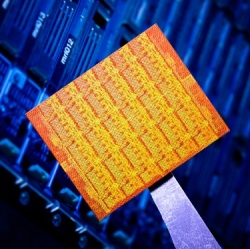
Demand for the Raspberry Pi computer – a £22 British-designed system – was still running at 700 per second at the end of last week, according to one of its main distributors in the UK.
The device, intended to make programming simple and accessible for children much as the BBC Micro and Sinclair Spectrum did in the 1980s, has also attracted interest from a Middle East country which plans to issue one to every schoolgirl, said Harriet Green, chief executive of Premier Farnell, which is selling the device via its site.
"It’s interesting to look at why there’s so much excitement around Raspberry Pi," said Green. "I think that a lot of teachers, parents and children are worrying that they’re becoming just consumers – taking something out of a box and plugging it in. There’s a lot of points of concern about children being just consumers rather than creators and innovators."
The Raspberry Pi, whose price is fixed by the charity that controls it at $35 (and then adjusted locally via exchange rate), has already sold its initial production run, of around 10,000 units, which were sold through two companies, Premier Farnell and RS. "Demand was 20 times greater than our supply," said Green. But the price will not be raised; the company will simply increase production as far as it can to meet demand. "There’s a relationship between ubiquitous supply and how much it costs," said Green. "If you go back to the days of Amstrad and the success it had, you realise that there’s a great skill in getting the price right." She says the design itself is "beautiful" but "doesn’t cost much to make" – leaving enough profit to make it sustainable.
